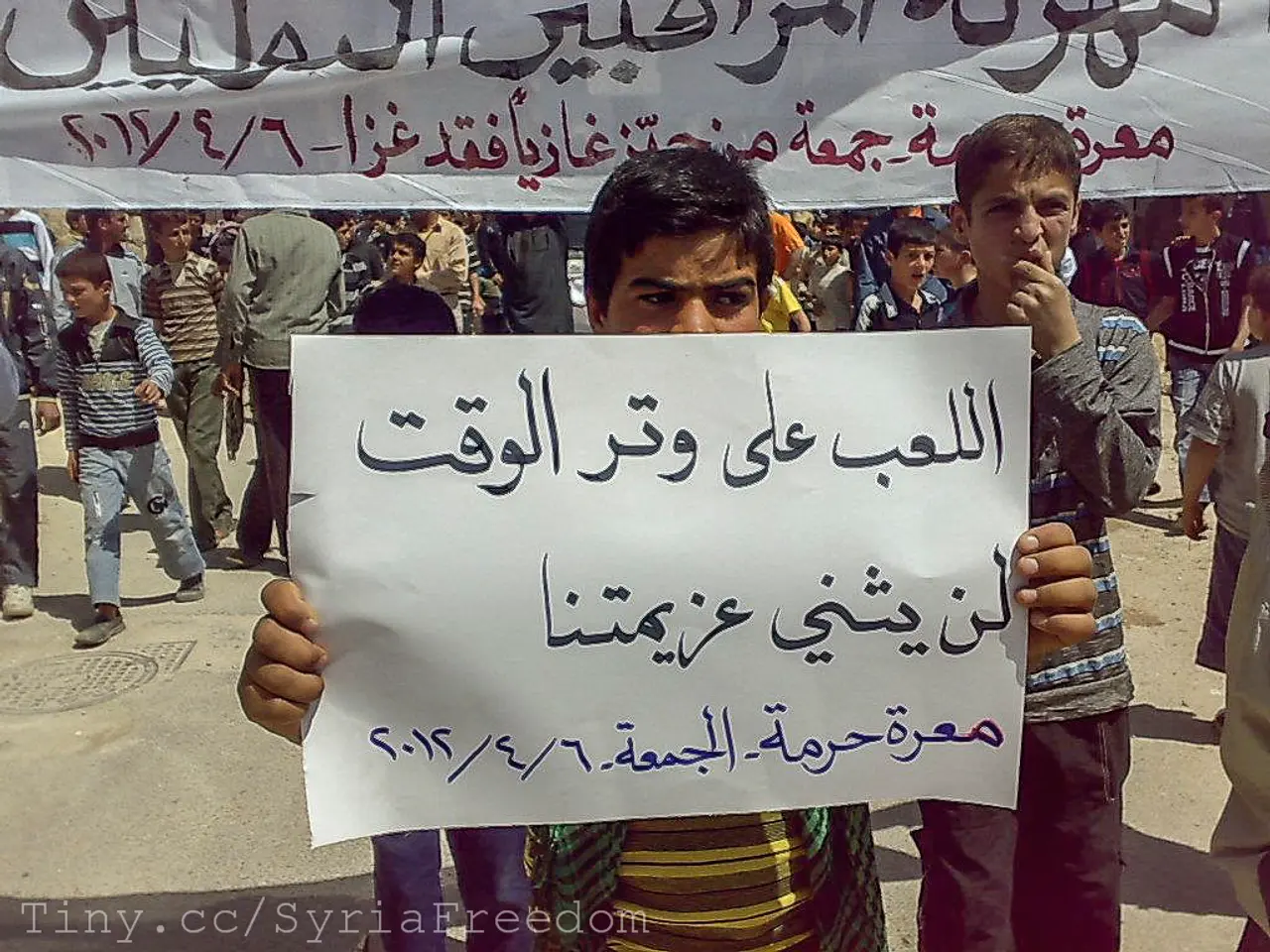Christmas Market Attack: Lawmakers Slam Bureaucratic Finger-Pointing over Security Responsibilities
Lawmakers express concern over contention amongst administrative bodies - Parliamentarians Express Concern Over Controversy Surrounding Administrative Authority
More than half a year after the horror at the Magdeburg Christmas Market, members of the investigative committee have lashed out at the ongoing disagreements among authorities over who should shoulder the blame for security lapses. SPD faction leader Rüdiger Erben highlighted that even prior to the tragic event, there were glaring differences in legal opinions regarding who was accountable for security measures. This astonishing failure to address these discrepancies preceding the attack is unacceptable, Erben assesses.
On the fateful day before Christmas, a 50-year-old Saudi national drove a car through the bustling Magdeburg Christmas Market, causing six fatalities and leaving over 300 with injuries. In the subsequent parliamentary investigative committee examining the attack, city officials, the operating company, and the police have since deflected accountability for the inadequate security arrangements. It quickly became apparent that involved parties often passed the buck onto other authorities.
Left faction leader Eva von Angern laments the senseless cycle of blame-shifting. She argued that responsibility for actions outside one's own jurisdiction was overlooked. As of yet, no one has stepped up to admit fault for the carnage at the Christmas market. "This simply reflects a culture of error avoidance," stated von Angern.
AfD faction leader Ulrich Siegmund, however, accuses other factions of misplacing priorities within the committee. Instead of focusing on why the perpetrator was present and why the constitutional protection failed to provide adequate surveillance, issues that have so far remained untouched, Siegmund suggests that the focus should be on the perpetrator. "This coalition is not about finding the truth," Siegmund alleges.
FDP faction leader Guido Kosmehl brushes off this accusation, promising that post-summer break, the committee will delve into the perpetrator's background. Kosmehl points to a shortcoming in the security plan put forth by the market organizer and criticizes a lack of uniform understanding among parties as to who bears what share of responsibility for security measures.
In://de.wikipedia.org/wiki/Magdeburger_Weihnachtsmarkt[1] [magdeburg.de][2] In://de.wikipedia.org/wiki/Magdeburger_T errorattacke[3] In://de.wikipedia.org/wiki/Bundeskriminalamt# Organisation[5] Primary responsibility for security at a typical German public event, such as the Magdeburg Christmas Market, lies with local police, with additional support from regional and federal agencies like the Federal Criminal Police Office (BKA) and the Federal Office for the Protection of the Constitution (BfV)[5]. The December 2024 incident, which involved a car ramming into marketgoers, raises questions about threat assessment and coordination among various security bodies[3][5].
The perpetrator, who, fitting neither the usual extremist attacker profile nor the typical background of terror suspects, has raised concerns about the effectiveness of existing surveillance and intelligence[4]. Critiques suggest that there might be information-sharing gaps among these agencies or that local police could be relatively underfunded or underprepared to recognize and handle less conventional threats[4][5].
Additionally, the aftermath of the attack has seen an upsurge in racist and xenophobic aggression against migrant communities in Magdeburg, with some expressing concern that local authorities do not offer adequate support or protection to those at risk[4]. Allegations have been made that the police improperly target or search victims rather than perpetrators, or that migrants hesitate to report crimes out of fear of jeopardizing their immigration status[4].
Overall, the main responsibility for the security of the Magdeburg Christmas Market lies with local police, with support from regional and federal agencies. However, the crux of the ongoing debate revolves around the efficiency of intelligence-sharing, resource allocation, and protection for at-risk communities in the wake of the attack[4][5].
The ongoing debate among authorities following the Magdeburg Christmas Market attack centers around accountability for security lapses, with SPD faction leader Rüdiger Erben pointing out that legal opinions regarding security measures were not addressed before the tragedy.
In the parliamentary investigative committee, city officials, the operating company, and the police have deflected accountability for the inadequate security arrangements, creating a cycle of blame-shifting. This culture of error avoidance, as observed by left faction leader Eva von Angern, seems to be an unfortunate characteristic of the current situation.





